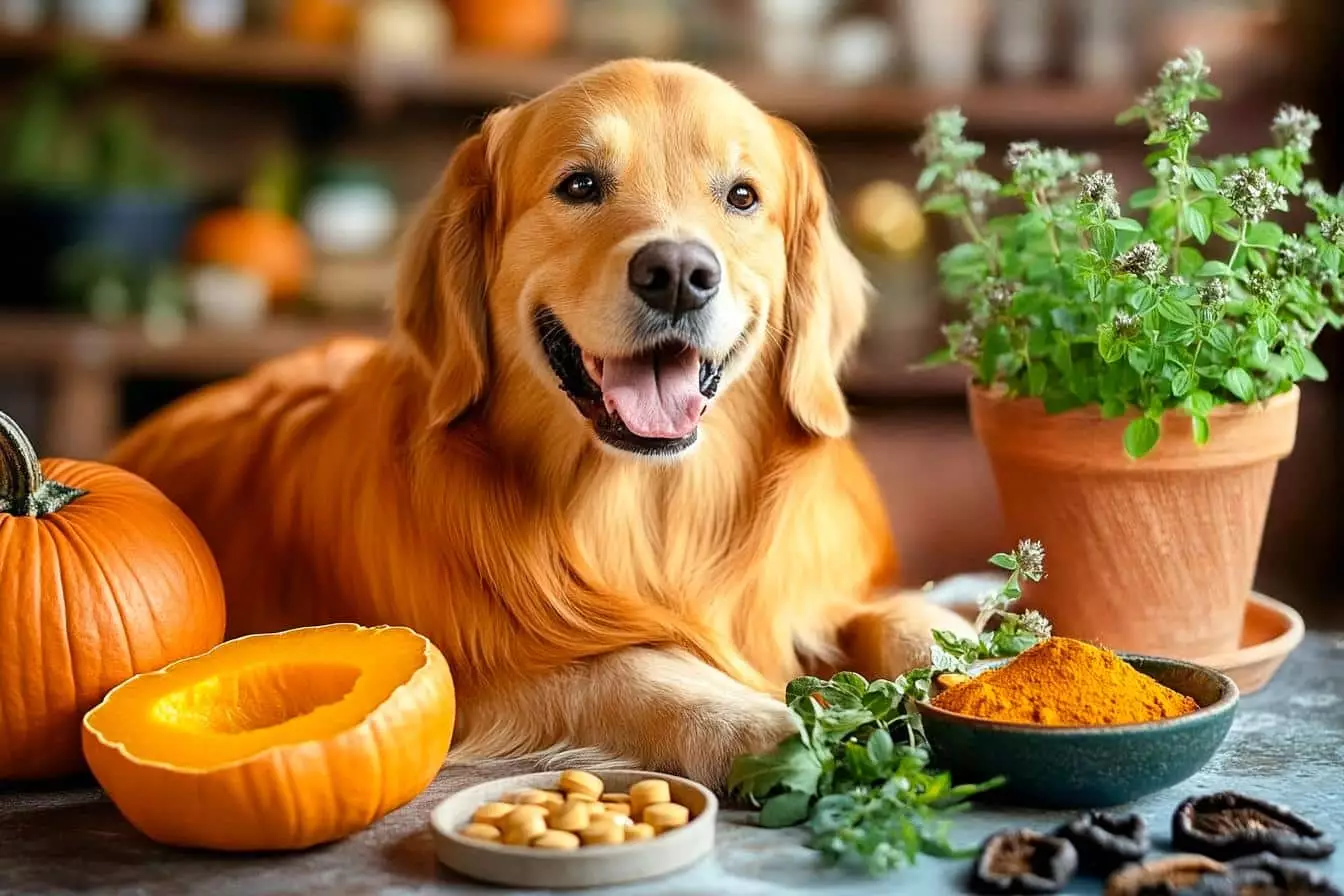Yeast infections in dogs are more than just an inconvenience; they pose unique challenges for both pets and their owners alike. These pesky infections arise predominantly from an overgrowth of Malassezia, a type of fungus found naturally on the skin and ears of dogs. When the internal ecosystem of a dog’s body is disrupted, it can lead not only to discomfort but also to recurrent health issues. It’s imperative that we understand the root causes of these infections to facilitate effective treatment, which often lies in the power of nature itself.
The Role of Gut Microbiome in Yeast Management
At the core of fighting yeast infections is the gut microbiome—an intricate community of microorganisms that play a vital role in maintaining health. A healthy balance of bacteria supports the immune system and creates a defense against harmful organisms like yeast. Probiotics are integral to reestablishing this balance, providing the body with beneficial bacteria that can limit yeast growth. Alongside probiotics, prebiotics act as the food source for these good bacteria, further enhancing their efficacy. A robust supplement regime that includes both can significantly diminish the occurrence of yeast infections in canines.
The Marvel of Natural Remedies
Veterinarians across the globe advocate for natural ingredients to combat yeast overgrowth effectively. One popular remedy is raw, unfiltered apple cider vinegar. This age-old solution can be applied topically where yeast is problematic, creating an unfriendly environment for fungal growth. Internally, when used judiciously and diluted, it may help in rectifying pH levels, further curbing yeast proliferation.
Omega-3 fatty acids stand out as another powerhouse against yeast-driven inflammation. Known for their anti-inflammatory properties, these fatty acids bolster skin barriers, alleviate itching, and can enhance immune responses. Quality fish oil supplements serve as a concentrated source of omega-3, offering significant benefits not just for skin health but for your dog’s overall well-being.
Harnessing the Power of Turmeric
Turmeric needs special mention due to its remarkable compound, curcumin, which is lauded for its anti-inflammatory, antioxidant, and antifungal effects. This golden spice does wonders in alleviating discomfort and reducing inflammation connected to yeast infections. Many holistic dog owners incorporate turmeric into their pets’ diets not just for its yeast-fighting capabilities but for systemic health benefits, including joint support.
The Immune-Boosting Properties of Medicinal Mushrooms
Yet another fascinating natural remedy is the use of medicinal mushrooms, a category garnering attention for their ability to support immune function. Varieties like reishi, turkey tail, and shiitake mushrooms provide adaptogenic properties that can help the body combat stress—a known trigger for yeast flare-ups. Incorporating these mushrooms into dog food can lead to enhanced resilience and overall health.
Coconut Oil and Its Antifungal Qualities
Coconut oil, with its high concentration of caprylic acid and lauric acid, serves as an effective antifungal agent. Whether applied directly to affected areas of the skin or included in meals, coconut oil can significantly hinder yeast growth when used correctly and judiciously. Dog owners seeking natural remedies often swear by its merits due to its versatility and efficacy.
Diluted Oregano Oil: A Potent Antifungal
Another notable natural ingredient is oregano oil, recognized in natural veterinary medicine for its antifungal properties. Its foundational compound, carvacrol, disrupts yeast cell membranes, effectively controlling the organism’s overgrowth. Given its potent nature, professional guidance is essential when incorporating oregano oil into your pet’s regimen to ensure safe and effective use.
Pumpkin: The Unsung Hero
When you think of pumpkin, you might initially associate it with digestive health, yet its role extends far beyond that. The fiber content found in pumpkin supports bowel movements and promotes healthy gut flora, creating a favorable environment for beneficial bacteria to thrive. As a natural prebiotic, its incorporation into a dog’s diet can further strengthen their defense against yeast infections.
A Holistic Approach to Care
Managing yeast infections in dogs involves a comprehensive strategy that embraces natural ingredients, aligns with a balanced diet, supports immune health, and promotes skin healing. Working closely with a veterinarian ensures that any new supplement strategy you consider suits your dog’s unique health profile, allowing for a tailored and effective approach. The essence lies in understanding your pet’s individual needs and utilizing the wealth of natural solutions available to promote optimum health.

